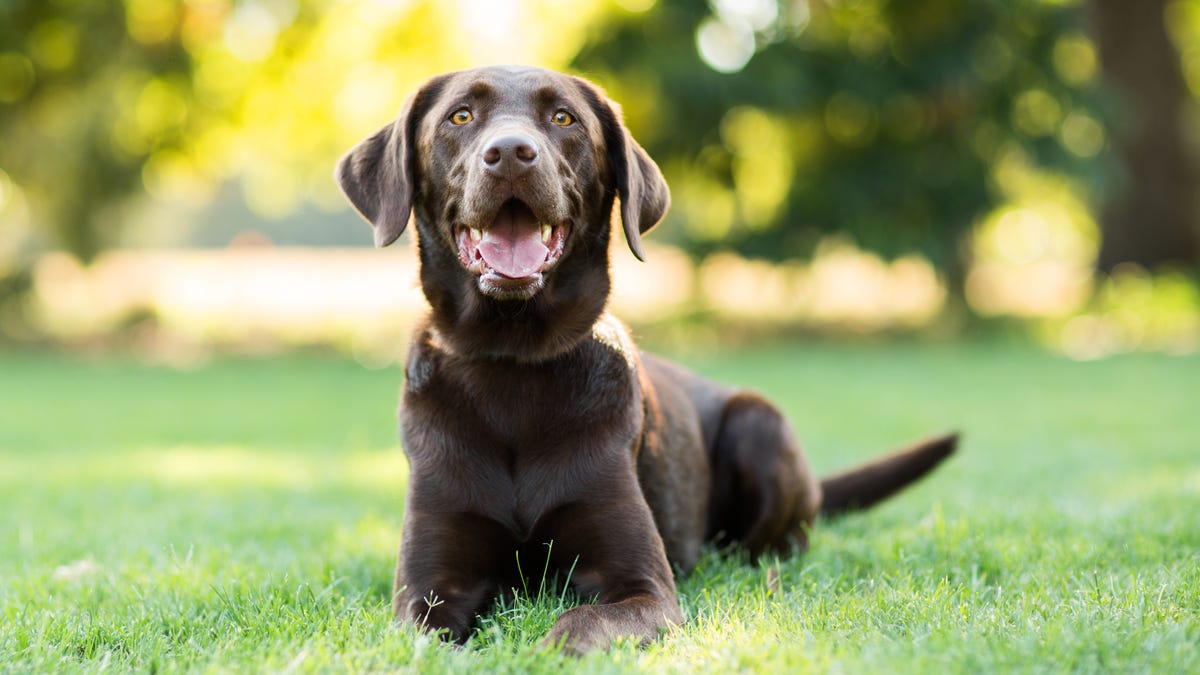 Why You Can Trust CNET
Why You Can Trust CNET Is Weed Killer Safe for Pets? What to Know
Should you avoid using weed killer to protect your dog or cat this summer? We asked a pet health professional.

Keep your dog or cat safe in your yard this summer by picking the right weed killer, and following the directions.
With spring and summer come gorgeous blossoms and warm weather -- along with pesky weeds. You may be tempted to grab the most powerful weed killer available to keep your lawn looking beautiful, but if you have a dog or cat who goes out into the yard (or if your neighbor does), you also have to keep their safety top of mind.
The good news is that weed killers can be used safely and effectively, even if you have pets in the yard. But it's important to consider all product warnings and use an abundance of caution to keep your animals healthy this season.
Here's everything to know about how to safely use weed killer around your pets.
Weed killer and pets: What to know
It's best to play it as safe as possible when it comes to animals and weed killers. When shopping, read the label of weed killers carefully. Some are marked as pet safe, but even then, they may offer specific instructions for keeping your animals unharmed while using the product.
You also want to look out for common toxic ingredients that can be deadly for pets. Check the Merck Veterinary Manual for a list of over 100 ingredients that can be deadly at different levels. It's a good idea to avoid any products with toxins such as glyphosate, organophosphates and paraquat.
You may also want to check weed killers to see if they have any certifications. The Organic Materials Review Institute certifies whether something is organic. While that doesn't always mean that it's safe for pets, it is a good place to start if you're interested in eliminating toxic products from the home to better protect your animals.
After treating your lawn, you should always wait at least 24 hours before allowing pets around treated areas, according to Pam Nichols, DVM, the immediate past president of the American Animal Hospital Association. If your pet develops any irritation from exposure after that time, rinse the area with copious amounts of cold water, she advises.
Make sure that you store weed killers in locked cabinets or places where your pet will never be able to access them. If you suspect that your pet has been poisoned or has ingested any dangerous chemicals, contact your veterinarian right away, or take your dog or cat directly to an animal hospital.
Taking care of your lawn doesn't have to mean putting your furry friends in danger.
Weeding solutions that are always pet-safe
While some weed killers may be hazardous to pets in certain situations, there are some solutions for getting rid of unwanted weeds that aren't likely to ever put your companion animal in harm's way.
Try hand weeding. OK, so this one can be time-consuming, but it is good, healthy exercise and a completely non-toxic way of kicking weeds to the curb (perhaps literally)!
Use weed killers formulated for pet safety. For example, Green Gobbler Weed Killer, Doctor Kirchner Natural Weed Killer and BioSafe Weed Control are made with less toxic ingredients than many commercial weed killers.
Other ways to keep your yard safe for pets
Weed killers aren't the only toxic dangers for your pet in your yard. You also need to be aware that some plants can be deadly to cats and dogs. The ASPCA has a full list of plants that are toxic and non-toxic for your yard, home and garden.
If you're a pet owner, you should never put snail killer out in your yard. "Things like organophosphates and chemicals used to kill snails are the most deadly of all," Nichols says. "Snail bait will kill dogs with only a few licks."
Finally, be careful with piles of compost. Composting has many benefits, but these piles of organic matter can look like a buffet to your pet, according to the ASPCA. Since food that's molding and decaying can have tremorgenic mycotoxins (which are poisonous for dogs) and there can be other things that are toxic to pets in compost, it's important to keep pets away from your piles. You may try a compost bin. Don't forget that dog waste can be composted too.
For more, check out our household pet safety guide, how to protect your pets from ticks and the best pet insurance companies available.